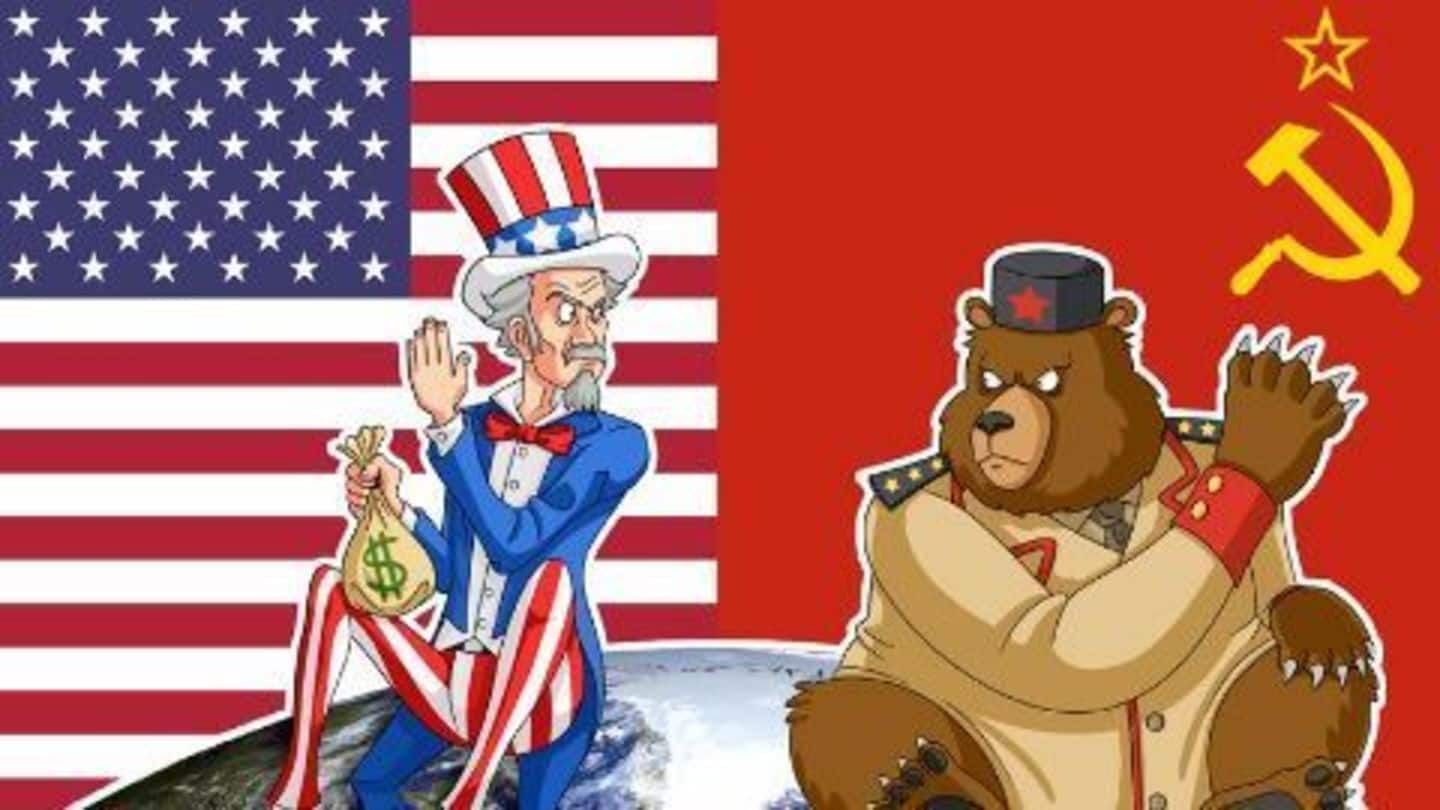
Russian PM says new 'Cold War' brewing
What's the story
Speaking at the Munich Security Conference in Germany, Russian Prime Minister Dmitry Medvedev said the strained relationship between his country and the West could be described as "a new Cold War."
"We at NATO do not want to see a Cold War," said Gen. Philip Breedlove, NATO's Commander, Europe.
The statements come amid rising tensions between the West and Russia over Syria.
Cold War
What was the Cold War?
The Cold War was a term used to describe the state of relations between the USA and USSR after World War 2.
Both countries embarked on a technology and arms race and came close to nuclear confrontation; however, they never engaged in real war.
The Cuban Missile Crisis, the Berlin Wall and Vietnam were some of the instances when the Cold War peaked.
Information
All rhetoric, no confrontation
The Cold War was primarily a rhetorical battle between the US and USSR, and ended in 1989 with the fall of the Soviet Union. However, tensions between Russia and the US continued to remain even after.
Nov 2013
What was the Ukraine Crisis?
In 2013, pro-Russian President Viktor Yanukovych suspended preparations for Ukraine's ascension to the EU.
He was overthrown and replaced by Petro Poroshenko, who began a violent crackdown on pro-Russian separatists in Eastern Ukraine.
Consequently, Russian backed separatists annexed the Crimean peninsula and Russian President Vladimir Putin announced Crimea's ascension to Russia.
This incident significantly escalated tensions, bordering on armed conflict between Russia and NATO.
Effects
What were the effects of the Ukraine crisis?
Economic sanctions imposed on Russia by western nations contributed to the collapse in value of the Rouble and the Russian financial crisis.
Politics over natural gas pipeline routes to Europe, which pass through Ukraine were severely affected, disrupting supplies to Germany and France.
The incident saw NATO place anti aircraft and air defence systems in Eastern Europe for the first time since the Cold-War.
Syria
The Syrian Crisis
The Syrian crISIS began with protests similar to the Arab Spring in 2011, when people challenged the rule of President Bashar Al-Assad.
The crisis spiraled out of control, when Islamic State militants began taking control of Syrian territory by 2013.
This divided Syria into three main groups, the Syrian government forces, ISIS and 'moderate' opposition forces all of whom fought each other over territory.
Fall-out
Syria's effects on Russia's relations with the West
Disagreements between Russia and the West cropped up over support to the various factions vying for power in Syria.
While the West armed and trained rebels against the Syrian government, Russia began arming the Syrian government.
The crisis worsened after Russia began airstrikes against opposition forces in September'15.
The move consequently began what experts call a 'proxy-war' between Russia and the US in Syria.
Information
Flashpoints in Syria
After Russia began airstrikes in Syria, in September 2015 a Russian passenger jet was shot down over Egypt. In December 2015, Turkey shot down a Russian fighter jet and accused Russia of airspace violations, the first military attack on Russia over the Syrian crisis.